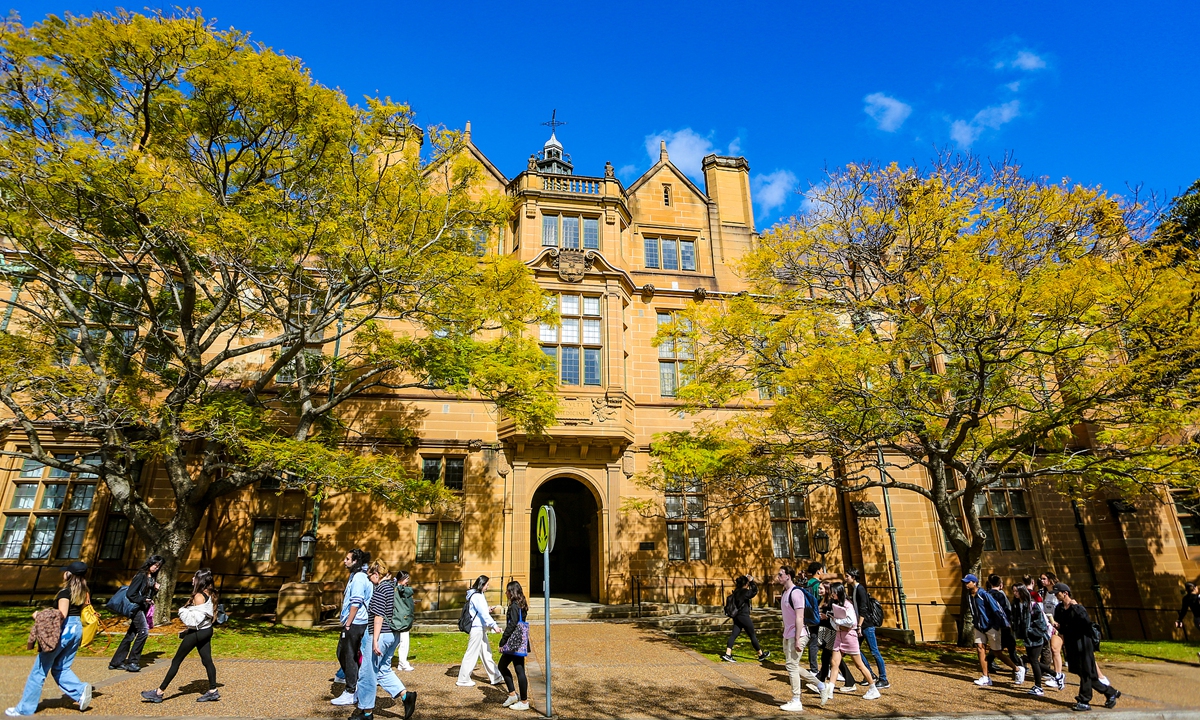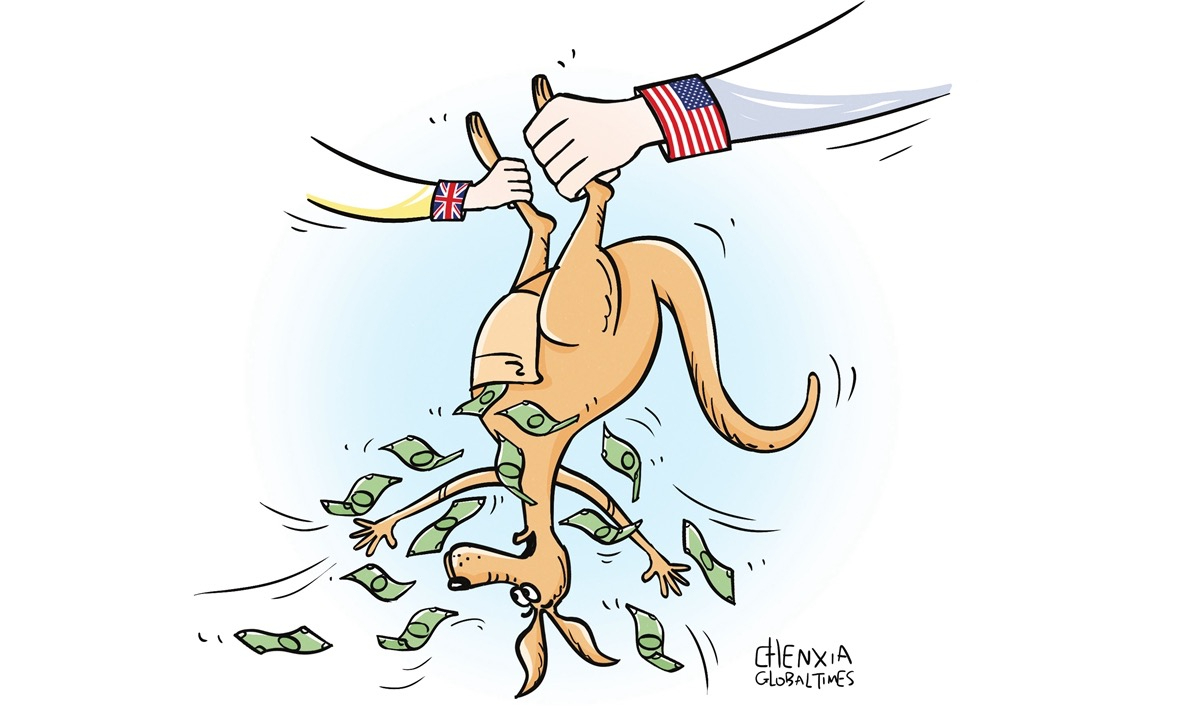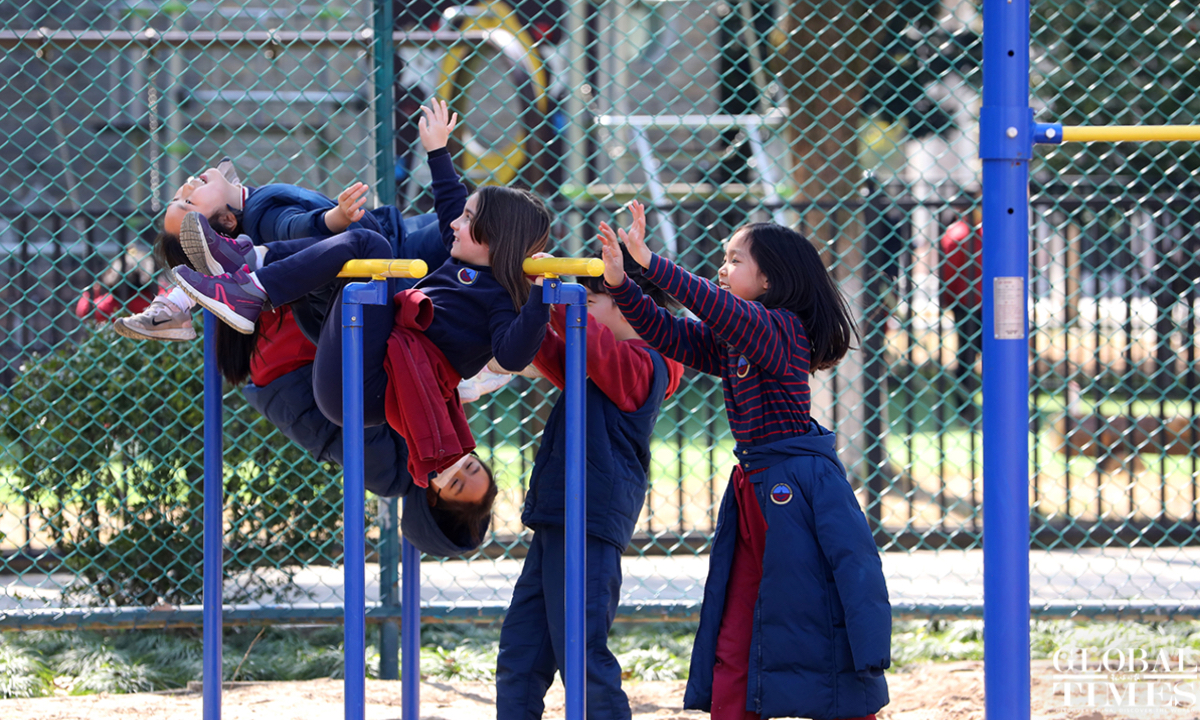Australia's limit on international students is an act of 'robbing Peter to pay Paul'

Photo: CFP
The Australian government recently announced that it would cap the number of international student enrollments for next year. In 2025, the total number of international students permitted to study in Australia will be limited to 270,000, a 16 percent decrease compared to 2023 levels. Among these 270,000 students, slightly more than half of these 270,000 students will be allowed to enroll in public universities, while the rest will attend private institutions or vocational schools. Other new measures include a substantial increase in student visa fees and stricter English language proficiency requirements for university admission. According to the Australian government, the goal of introducing these new policies is to reduce immigration in response to current challenges, such as rising living costs and housing shortages in Australia.
Australia is a nation built on immigration, and since the 1970s, multiculturalism has become a key national policy. Immigrants from around the world have brought strong vitality to Australia's economic revival, social development and cultural prosperity. Australia boasts a relatively complete and high-quality education system. As an English-speaking country, it offers a natural linguistic advantage for international students with English proficiency. Particularly since the beginning of the 21st century, Australia has become a major destination for international students, attracting young students from all over the world, especially from the Asia-Pacific region.
Over the years, international students have injected tremendous momentum into Australia's development. In the 2022-2023 fiscal year alone, international education contributed AUD 36.4 billion to Australia's economy. Tuition fees paid by international students have become a major source of financial income for various Australian educational institutions, especially universities, providing essential support for infrastructure development, academic growth, research innovation and talent recruitment. The living expenses of international students in Australia have driven the growth of local industries such as housing, dining, transportation, telecommunications and tourism. International students have also deeply integrated with local society, enriching and diversifying Australian culture.
After completing their studies, most international students return to their home countries, becoming important bridges for fostering friendly relations between their countries and Australia. A portion of graduates, however, choose to immigrate and settle in Australia. Australia's skilled migration system follows a relatively strict points-based system, so these new immigrants often become elite talent in industries that are either in short supply or cutting edge in Australia.
Since the end of the pandemic, Australia has faced significant inflation issues, particularly with the soaring prices of food and essential goods. Additionally, due to the prolonged neglect of infrastructure development and the real estate sector, many cities in Australia are experiencing housing shortages, leading to a rise in rent prices. This has further impacted the quality of life for local residents.
Next year, Australia will hold its federal election. Faced with public discontent and declining poll numbers, the ruling party has chosen to significantly reduce the number of international students in order to lower the demand for housing, food and other essentials. With fewer international students, the number of graduates immigrating to Australia will naturally decrease, which appears to be a way to reduce the overall population and alleviate housing shortages. The ruling party hopes this move will boost its chances in the upcoming election.
It is not difficult to see that this approach of "robbing Peter to pay Paul" is clearly short-sighted. David Lloyd, chair of Universities Australia, stated that such restrictions undermine the sector's contributions to both the economy and educational landscape, turning universities into a "political plaything."
In response to the current economic and livelihood challenges, what Australia needs are practical and effective economic measures, not closing its doors to the outside world. In recent years, Australia's foreign policy has generally shown a trend of retrenchment. Politically, it increased its reliance on the "Five Eyes" alliance, formed AUKUS with the US and the UK militarily, tightened the scrutiny of Chinese investment projects economically, and placed more emphasis on Western values culturally. In the 21st century, Australia positioned itself as an Asia-Pacific nation, strengthening exchanges and cooperation with countries in the region, and as a result, China-Australian relations steadily improved. However, in recent years, Canberra has deviated from its previously open and diverse path, focusing more on forming close ties with a few Anglo-Saxon countries. The new education policy regarding international students reveals that the anti-globalization backlash has now reached Australia's education sector.
The author is professor and executive director of the Asia Pacific Studies Centre, East China Normal University. opinion@globaltimes.com.cn



